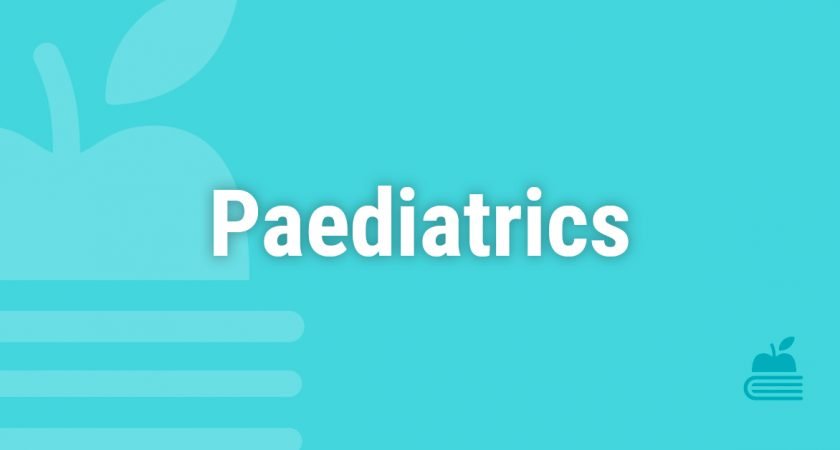Read week
Hi everyone!
When is the last time you’ve had a good belly laugh? Take a few minutes now to tell a joke to your partner, or get into a tickling match with a friend. Practising joyfulness is sometimes quite difficult when life is piling in on top of you, but really is something that we should all pursue to make our time more enjoyable.
This week is about paediatrics.
Paediatrics is an enormous topic and can feel overwhelming. But really, the problems that children face are often similar to adults and have been covered in the adult Knowledge articles. The Royal Children’s Hospital website is the place to find the most up to date and reliable clinical guidelines for paediatrics.
Autism is a concern for most parents. A brief history of the child’s behaviour can help determine if there is a concern. Behaviours such as impaired social interaction, delay in communication, and ritualistic behaviours can be indicative. It is important to differentiate from other disorders such as anxiety, intellectual disability and Asperger disorder. Parents should be reassured that there are supports now available for patients with autism and Asperger disorder and many grow up to be successful individuals. I know some doctors who have Asperger disorder.
Paediatric Orthopaedics is an important topic to cover in your preparation for exams. You must know the differentials for hip, knee and foot pain in a child and how your clinical suspicion should change based on the patient’s age and presentation. Never overlook the possibility of child abuse – particularly in a toddler aged 1-4 when the pathology does not match the mechanism of injury. Look out for circumferential bruising, and abnormal behaviours.
Be kind to yourself and choose to laugh!
Dr Andrew Harris
Director of Amadeus Education.
Did you know?
According to BEACH data, 11.3% of all encounters in General Practice were for children aged 14 and younger. Consider this as you are preparing for your exams. (Source: General practice activity in Australia: 2015-16. https://bit.ly/2c4d8Em)
Presenting complaints:
These are the common presenting complaints that should be covered for this topic:
- Abdominal pain, acute in children (https://bit.ly/2AP4qmw)
- Abdominal pain, recurrent in children (https://bit.ly/2sp10Cy)
- Arthralgia/arthritis in children (https://bit.ly/2FsVM0Z)
- Chest pain, children (https://bit.ly/2Mf2N60)
- Cough, chronic in children (https://bit.ly/2TM2sKK)
- Crying and fussing infant (https://bit.ly/2ssdw47)
- Febrile child (https://bit.ly/2SSq7ch) (BEACH)
- Enuresis
- Limp in children (https://bit.ly/2RApCHC)
Common conditions:
These are the common conditions that should be reviewed for this topic:
Topics | Important reading |
Problem behaviour |
|
GIT – food intolerance, GORD, Constipation, Failure to thrive, Neonatal jaundice |
|
Urology – UTI, Enuresis |
|
Development – Cerebral palsy and child with disability, Autism, Developmental delay |
|
Infections – Fever, Febrile convulsions, Childhood infections |
|
Respiratory – Cystic fibrosis, wheeze, sleep disorders |
|
Musculoskeletal conditions – genu valgus, genu varum, Osgood-schlatter, in-toeing, transient synovitis, juvenile idiopathic arthrtisi, Perthes disease, transient synovitis, slipped femoral epiphysis |
|
Mental health – depression, eating disorders |
|
SIDS |
|
Child abuse |
|
Medication doses:
These are the medications and doses that should be learned for the exam:
Condition | Medication |
Analgesia |
|
Croup (mild – moderate) |
|
Otitis media |
|
Bacterial sinusitis |
|
Bacterial tonsillitis |
|
Epiglottitis |
|
Mnemonics:
These are some important mnemonics relevant to this topic:
- Alvarado score (acute appendicitis)
- Centor criteria (strep pharyngitis)
CHECKS:
Here are the list of recommended Checks that would be useful in your study for GP exams (accessed via subscription from http://gplearning.racgp.org.au):
- Child development, June 2018
- Adolescent health, September 2017
- Paediatric health, August 2017
- Stages of life: Childhood, April 2015
- Stages of life: Adolescent/youth health, May 2015
- Paediatrics, April 2013
- First 12 months of life, January 2011
Focus on clinical skills:
Here is a brief focus on some OSCE preparation topics related to this topic:
- Counselling mother/father about – eating disorder, development concern
- Developmental assessment
- Paediatric examination playlist by GP Synergy: https://bit.ly/2RP0egv
Focus on medicolegal:
Here is a brief focus on the medicolegal issues covered in Australian Family Physician:
- Genetic testing: medico-legal issues. AFP, July 2014 (https://bit.ly/2RT3M0Z)
- Mohammed’s case. AFP, May 2014 (https://bit.ly/2RBn0c8)
- Consent to medical treatment: the mature minor. March 2011 (https://bit.ly/2FzYZfp)
- Child abuse: Mandatory reporting requirements. November 2011 (https://bit.ly/2R2MASe)
Copyright © 2021 Andrew Harris

